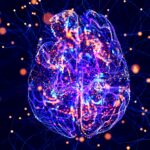6 Things You Didn’t Know Children Inherit Only from Their Fathers

Fathers shape their children’s lives in many ways, from teaching practical life skills to passing down traits that run deeper than we might imagine. While we often hear about the nurturing role of mothers, fathers contribute significantly not just to our upbringing but to our genetic makeup as well. Their influence extends beyond just who teaches us to ride a bike or fix a leaky faucet—it’s embedded in our DNA.
In fact, there are some traits that children inherit solely from their fathers, adding a unique dimension to how we develop as individuals. From the risk of heart disease to the very determination of gender, the role of fathers in our lives reaches down to a molecular level. Let’s explore six fascinating things you may not know are passed down exclusively from dads.
How Dad’s DNA Shapes Who We Are
We all get 50% of our DNA from each parent, but the way those genes are expressed isn’t always even. In fact, a study from Nature Genetics in 2015 found that about 60% of the genes we inherit from our fathers are more dominant than those from our mothers.
This can affect more than just physical traits like eye color or hair texture. Fathers can pass on genetic conditions or mutations that may not appear in children who inherit similar genes from their mothers. Paternal genes can play a bigger role in health conditions, making their contribution to our genetic makeup even more significant than most realize.
Fathers don’t just shape how we look—they also influence our risk for certain health issues. This is why understanding paternal genetics is so important in figuring out our overall health and development.
1. The Role of Dad’s Genes in Genetic Mutations

When it comes to genetic mutations, the odds seem to favor paternal inheritance. Children are more likely to experience the effects of genetic mutations passed down from their fathers than from their mothers. This is due to the fact that men continuously produce new sperm throughout their lifetime, while women are born with a finite number of eggs. Over time, as men age, the likelihood of genetic mutations in their sperm increases, and this gets passed on to their children.
Mutations aren’t always negative, but when they are, they can result in some serious consequences. Fathers are more likely to pass down conditions such as autism, schizophrenia, and even certain cancers due to these genetic mutations. The changes in DNA caused by aging sperm make it more likely that the mutation will manifest in the child. This helps explain why children born to older fathers may be at a higher risk for developmental disorders.
It’s important to note that genetic mutations passed from fathers don’t just affect the individual. These mutations can continue to be passed down to future generations. The lasting impact of a single mutation can influence a family’s genetic legacy for years to come. Understanding how this process works sheds light on why genetic inheritance from fathers deserves more attention.
2. Determining Gender
When it comes to determining a baby’s gender, it’s all up to dad. Moms can only pass down an X chromosome, but dads carry both X and Y chromosomes. If the dad passes on an X chromosome, the child will be a girl; if he passes on a Y chromosome, the child will be a boy.
But the Y chromosome doesn’t just decide gender—it also carries other traits that dads pass down to their sons, like patterns of hair growth or even certain fertility factors. Some health risks unique to men are also carried on the Y chromosome, making it an important part of a son’s genetic makeup.
Dads hold the key to not only their children’s gender but also some traits and risks that are passed exclusively through the Y chromosome.
3. Dad’s Genes and Heart Disease Risk
Heart disease is one of the leading causes of death worldwide, and sadly, it’s something that fathers can pass down to their children—especially sons. Men with a specific variation of the Y chromosome, called the haplogroup I Y chromosome, are at a 50% higher risk of developing heart disease. This genetic risk is passed directly from fathers to sons, meaning daughters are usually not affected.
The Y chromosome influences more than just gender; it also plays a role in a son’s risk for heart problems. Research shows this genetic variant affects how the immune system responds to inflammation, which can increase the risk of heart disease.
Knowing your family history, particularly when it comes to heart health, can help you take preventive steps. Sons with fathers who had heart disease should be extra careful about their lifestyle to manage their own heart health.
4. Mental Health Links to Dad’s DNA
Fathers can also pass on mental health conditions like schizophrenia and ADHD to their children, especially when they’re older at the time of conception. As men age, their sperm is more likely to carry genetic changes that can increase the risk of these disorders in their kids.
Schizophrenia, in particular, has been closely linked to paternal age. Kids born to older dads are more likely to develop this condition. ADHD, which affects focus and behavior, can also be passed down from fathers, especially when mutations in the sperm occur due to aging.
Understanding the connection between a father’s age and the risk of inheriting mental health conditions highlights the importance of genetics in mental well-being. If there’s a family history of these conditions, it’s worth being mindful of the potential genetic risks.
5. Dental Health: It’s All in Dad’s Smile

Your dad might have more to do with your dental health than you realize. Studies show that the genes responsible for dental health, including things like crooked teeth or susceptibility to cavities, are more likely to be inherited from fathers than from mothers.
If your dad had a great smile, you might be lucky enough to skip braces. But if he struggled with dental issues, there’s a higher chance you’ll need some extra dental care too. It’s not just about how straight your teeth are—dad’s genes can also affect your chances of gum disease or tooth decay.
Being aware of your family’s dental history can help you take steps to prevent future issues. A little extra attention to oral health might be necessary if your dad’s side has a history of dental problems.
6. Passing Down Fertility Challenges
One unexpected thing fathers can pass down is infertility. A study published in the Journal of Human Reproduction found that sons of fathers who conceived through IVF (in vitro fertilization) were more likely to face fertility issues themselves. The same genetic factors that led to the father’s infertility can be passed down to his sons.
While this might seem concerning, knowing about this inherited risk can help. Sons born through IVF may want to keep an eye on their fertility health as they grow older. Fortunately, the same technologies that helped their fathers can often assist them in overcoming similar challenges.
Dad’s Influence: In Our Genes and Our Lives

Fathers do more than just teach life lessons—they leave a lasting mark on us through their DNA. From determining our gender to passing down health traits, their influence runs deeper than we often realize. Knowing more about what we inherit from our dads can help us understand ourselves better, especially when it comes to our health.
But genetics are only part of the story. While dad might pass on certain risks like heart disease or mental health conditions, it’s what we do with that knowledge that truly matters. By staying informed and making healthy lifestyle choices, we can manage and even reduce some of those inherited risks.
In the end, dads give us more than their genes. They provide us with a foundation, not just through the traits they pass down, but also through the guidance and support they offer throughout our lives.
Featured image from: Shutterstock
Loading...






